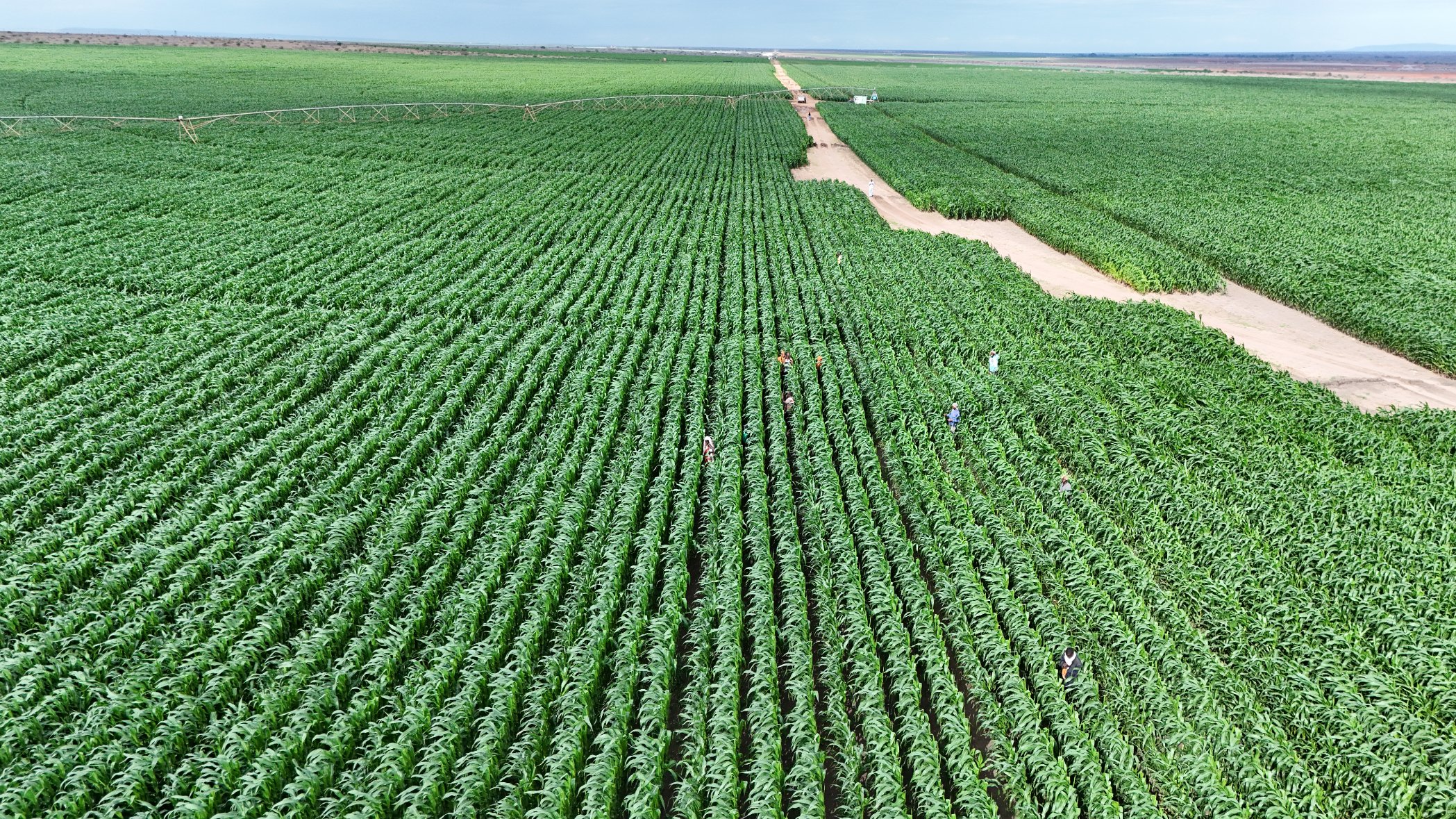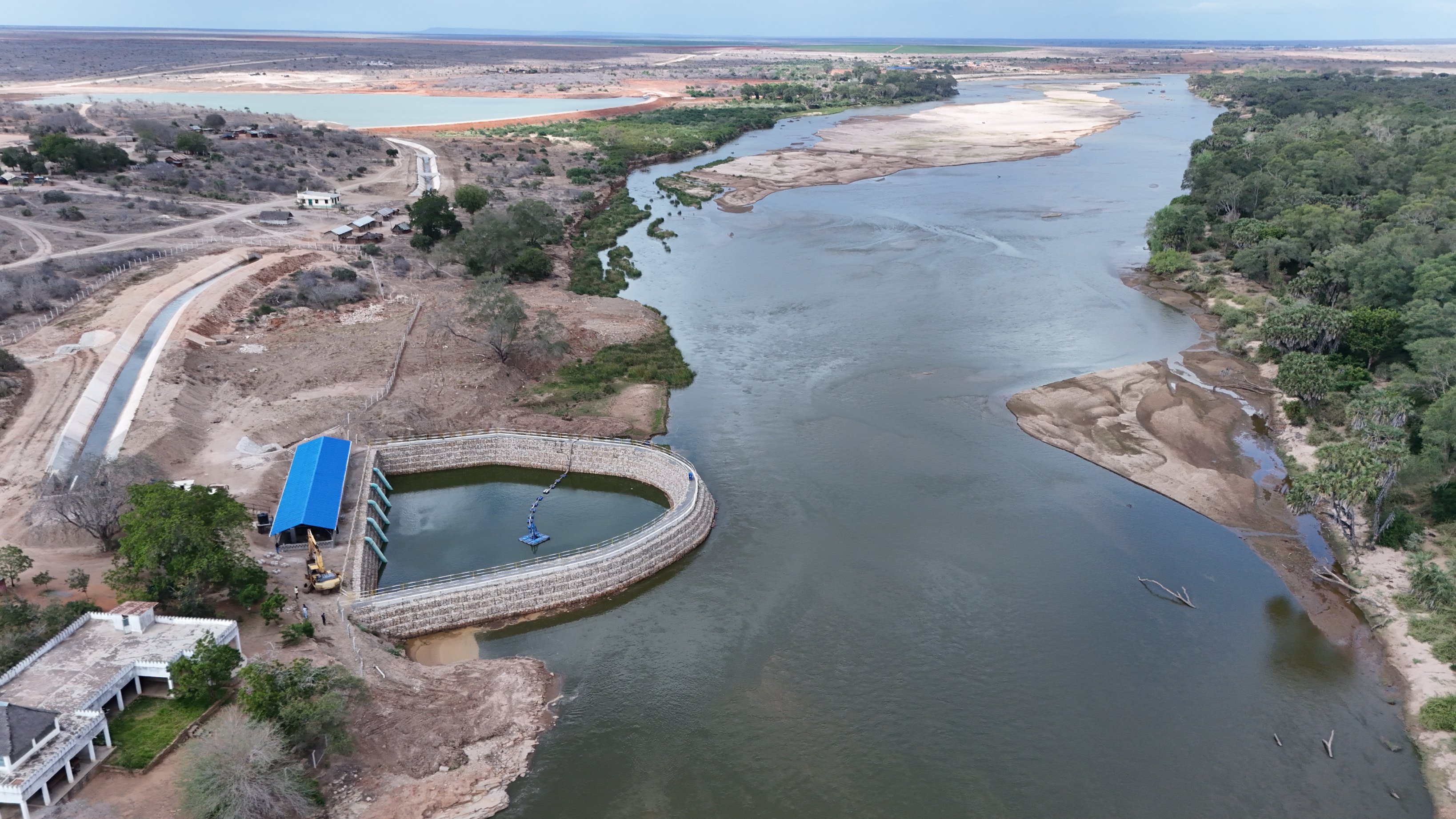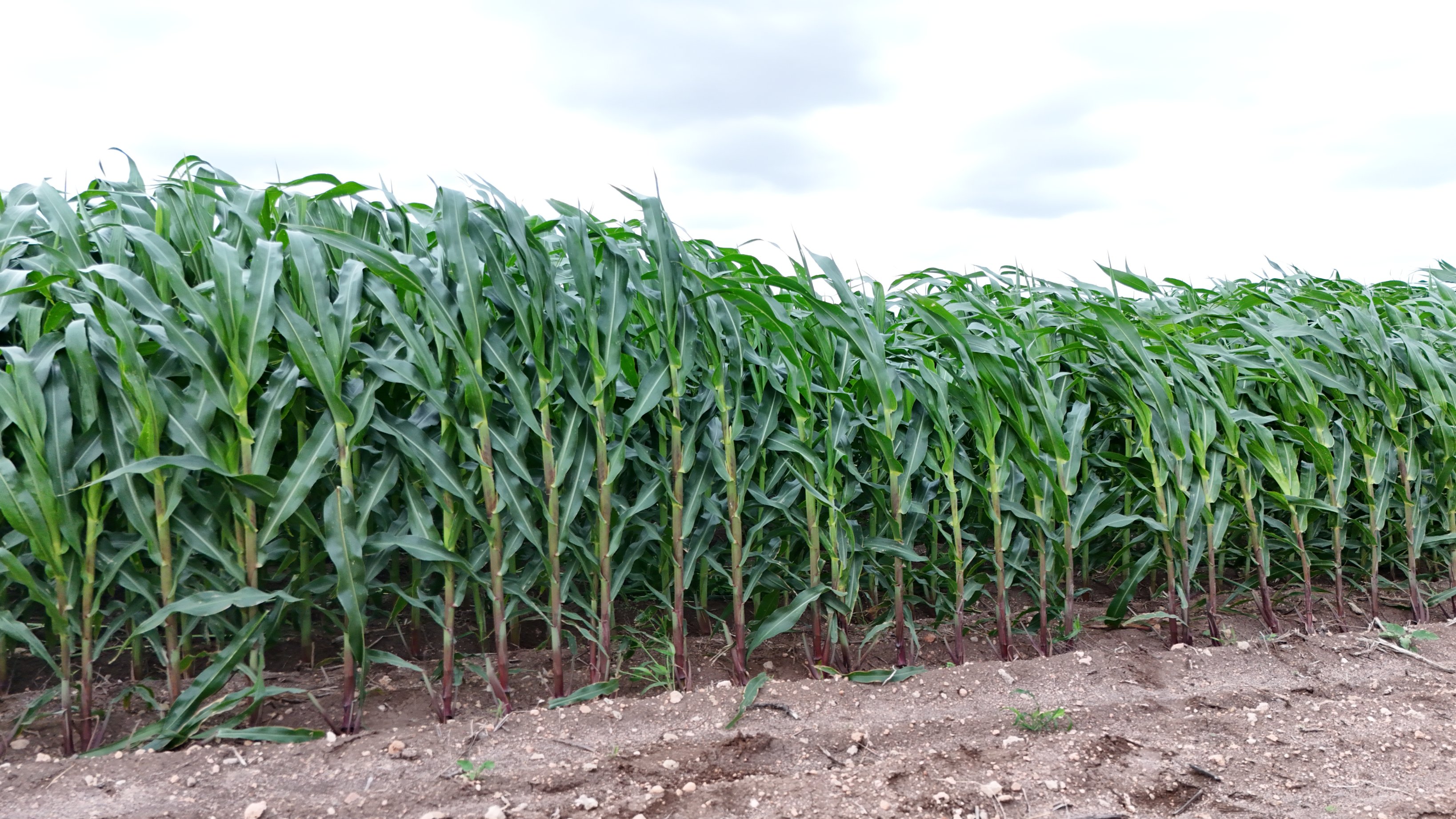
 A section of the Galana Kulalu scheme is currently under maize cultivation/PCS
A section of the Galana Kulalu scheme is currently under maize cultivation/PCS Ruto said the initiative is no longer a dream but a working model that will feed the country and create jobs.
“We are on course to making Kenya food secure. The transformative Galana-Kulalu Food Security Project is one of our many initiatives that will significantly scale up food production,” he said.
The mega irrigation project, which straddles Kilifi and Tana River counties, was first launched in August 2014 under the Jubilee administration.
A direct Sh14.5 billion contract was awarded on August 15, 2014, to an Israeli company to develop a 10,000-acre model farm, aimed eventually at irrigating up to one million acres.
The project, however, failed to deliver on its promise amid corruption claims.
On January 3, 2023, President Ruto announced plans to revive it in a bid to enhance food production.
He revoked plans to subdivide the land into settlement parcels and instead directed the start of food production on the existing 10,000 acres, beginning with maize in February 2023.
Ruto also announced plans to build a new intake that will ensure water flows to the farms.
Key components of the Sh519 million project included a 753-metre inlet canal, a 450 million-litre reservoir, a 1,210-metre outlet canal and a 20 million-litre off-take sump.
The completion of the project is set to pave the way for large-scale agricultural operations under a Public-Private Partnership framework.
 The canal that is set to help supply water to the farm/PCS
The canal that is set to help supply water to the farm/PCS During an inspection tour on May 16, the president reaffirmed his administration's commitment to turning Kenya into a self-sufficient nation in food production.
He noted that critical infrastructure at the project has already been completed, including massive water reservoirs, irrigation canals, and pump stations.
The government has awarded sections of the 250,000-acre irrigation scheme to three firms: Selu Africa Limited, Nyumbani Foundation, and Al Dahra of the United Arab Emirates (UAE).
Under the new arrangement, Selu Africa will cultivate 20,000 acres, Nyumbani Foundation will manage 50,000 acres, and Al Dahra will take up the largest portion with 180,000 acres.
A successful maize harvest was executed in late 2023 by Selu on the initial 500‑acre pilot phase.
They delivered a bumper yield of around 1,200 tonnes, which translates to up to 35 bags of 90 kg each per acre, nearly four times the national average.
Following this, it secured plans to expand to 20,000 acres, with intentions to hit two million bags of maize annually once at scale.
The first large-scale plantation phase under this PPP arrangement began this year, focusing on grain production.
This phase, keen on the cultivation of seed maize for controlled cross-pollination, is an essential step in producing high-quality seeds that can be multiplied and distributed across the country.
By June 2025, the project was reported to be 90 per cent complete, with infrastructure and irrigation systems nearing finalisation, while full production continues on the developed zones, including the initial 10,000 acres.
The project is poised to contribute hundreds of thousands of bags of maize annually, reduce Kenya's dependence on imports by 40 per cent and position the country as a net exporter of food and animal feed.
Ruto said that through this private sector model, they would not only guarantee food supply but also create thousands of jobs, spur agribusiness, and open new export opportunities.
“This is no longer about plans and promises. It is about results,” the President said.
He said Kenya must move from seasonal food shortages to sustainable, year-round production.
To support the project’s viability, the government is also investing in a 54-kilometre power line to supply affordable electricity to the scheme, a move expected to cut the cost of maize production by over 40 per cent.
 A maize plantation at the scheme/PCS
A maize plantation at the scheme/PCS This will make locally grown food more affordable and competitive.
“We are not here for politics. We are here to grow food, feed the nation, and build Kenya,” he said.
To enhance access to the scheme and ease the transportation of inputs and produce, the government is also putting up the Galana-Kulalu bridge.
Started in January this year, the project is now 61 per cent complete.












